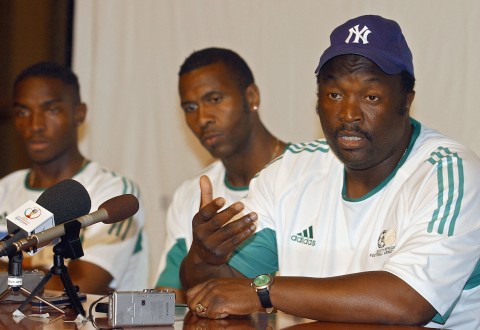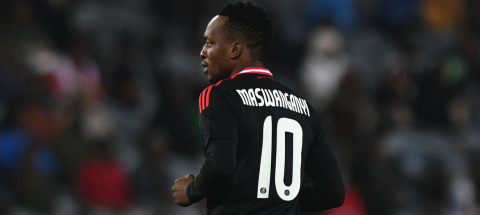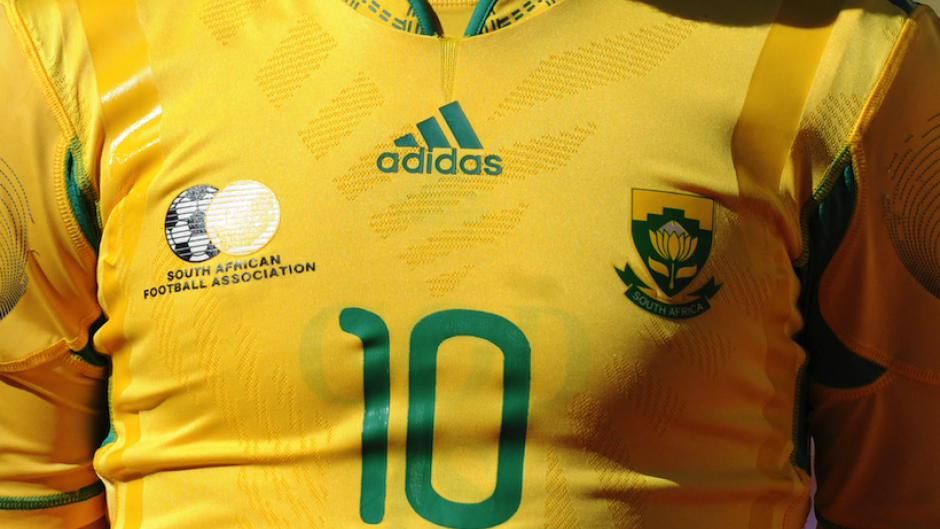JOHANNESBURG - In football, some jersey numbers carry more significance than just distinguishing players on the field.
These numbers are steeped in history and are linked to some of the greatest players the sport has ever seen.
Both globally and in South Africa, numbers like 10, 7, and 15 have become iconic.
For the players who wear these numbers today, the pressure to live up to the legends who donned them before is immense.
The number 10 jersey is recognised worldwide. Players like Diego Maradona, Lionel Messi, and Pelé made it famous, showcasing creativity, leadership, and extraordinary skill.
In South Africa, the number 10 is synonymous with Jomo Sono, a local legend who turned it into a symbol of football greatness.
Any player who wears this number today must contend with the high expectations from fans and the football community.
Jomo Sono once remarked, “I did not feel the pressure, I just played. Mr. Khoza is the one who assigns the jersey numbers to the players. The jersey doesn’t play, it’s the player who performs on the field.”

File: Jomo Sono as head coach of the South African soccer team speaks at a press conference on 1 June 2002 in Busan, South Korea.
Another significant number in South African football is 15, made legendary by Doctor Khumalo. Known for his football intelligence and skill, Khumalo’s performances with Kaizer Chiefs and Bafana Bafana elevated the number 15 to a status of its own.
Today, anyone wearing this number must bear the weight of Khumalo’s legacy. Speaking about jersey numbers, Doctor Khumalo said, “The respect for the number is based on the individual’s character.
Different individuals bring excitement when you see them, especially with numbers like 10, 6, 11. The legacy of these numbers is built by loyalty and by maintaining the number people can identify you with.
It has changed, and many players are not knowledgeable about the history. Without understanding that history, it’s hard to respect the number you’re wearing.”
At Orlando Pirates, Patrick Maswanganyi now carries the responsibility of the number 10.
Following in the footsteps of someone like Jomo Sono, Maswanganyi knows that fans will be watching closely, not only expecting him to play well but also to uphold the greatness associated with the number on his back.

At Orlando Pirates, Patrick Maswanganyi now carries the responsibility of the number 10. (BackpagePix/Sydney Mahlangu)
This kind of pressure isn’t limited to South Africa. Around the world, players who wear iconic numbers, such as Cristiano Ronaldo’s number 7 or Michael Jordan’s number 23 in basketball, constantly face scrutiny.
These numbers come with a rich history, and those who wear them are often compared to the legends who made the jerseys famous.
In South African football, these jersey numbers mean much more than just a shirt. They are symbols of excellence, and the players wearing them today must balance the challenge of honouring the past while forging their own path.
Fans still recall the glory days of players like Jomo Sono and Doctor Khumalo and expect the new generation to meet that high standard.
For players like Maswanganyi, the task is to carve out their own legacy while respecting the history behind their jersey number.
The question remains: Can today’s players handle the pressure, or will the weight of the legacy prove too heavy to bear?

File: Bafana Bafana legends.
By Minenhle Thusi

